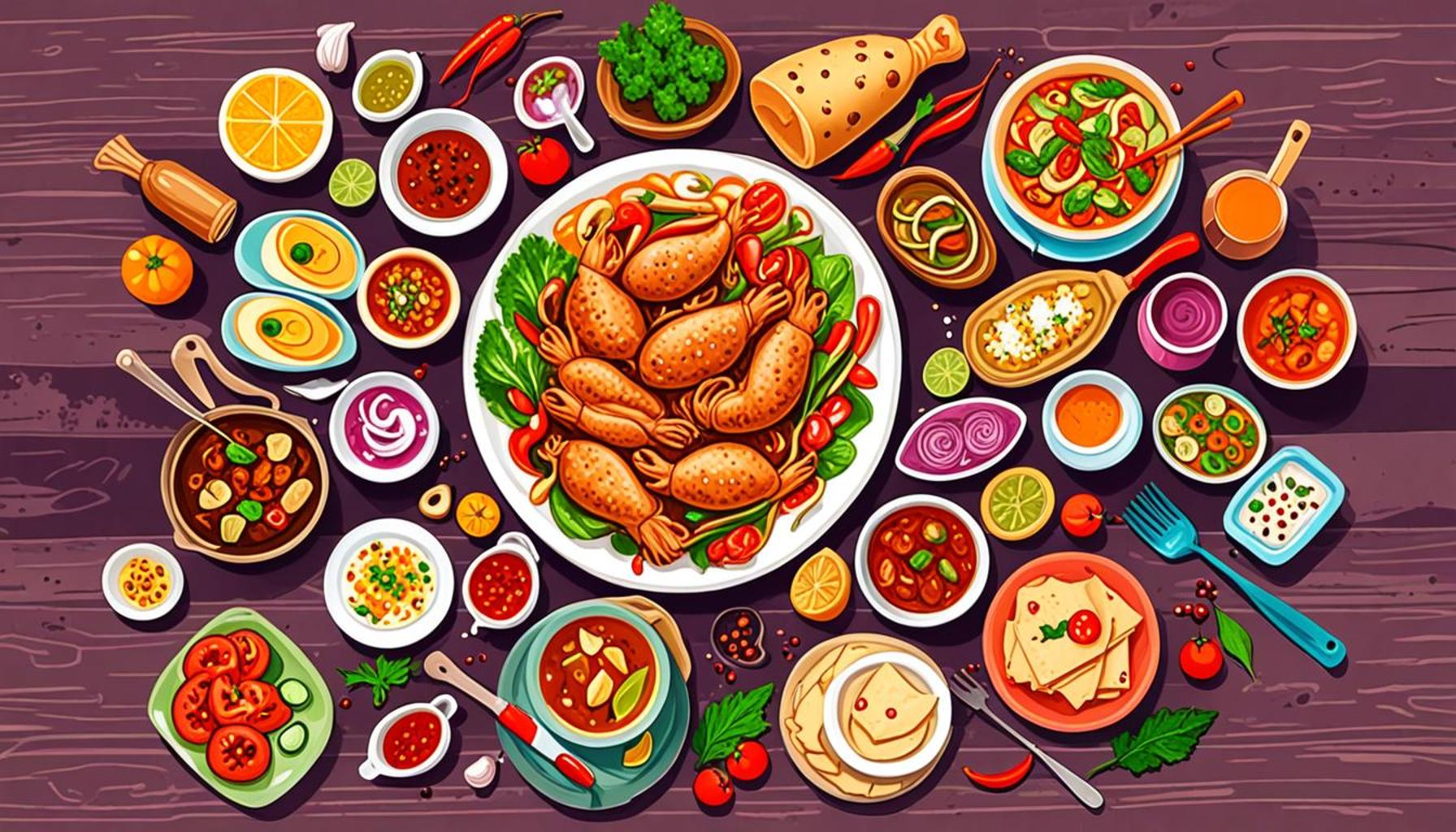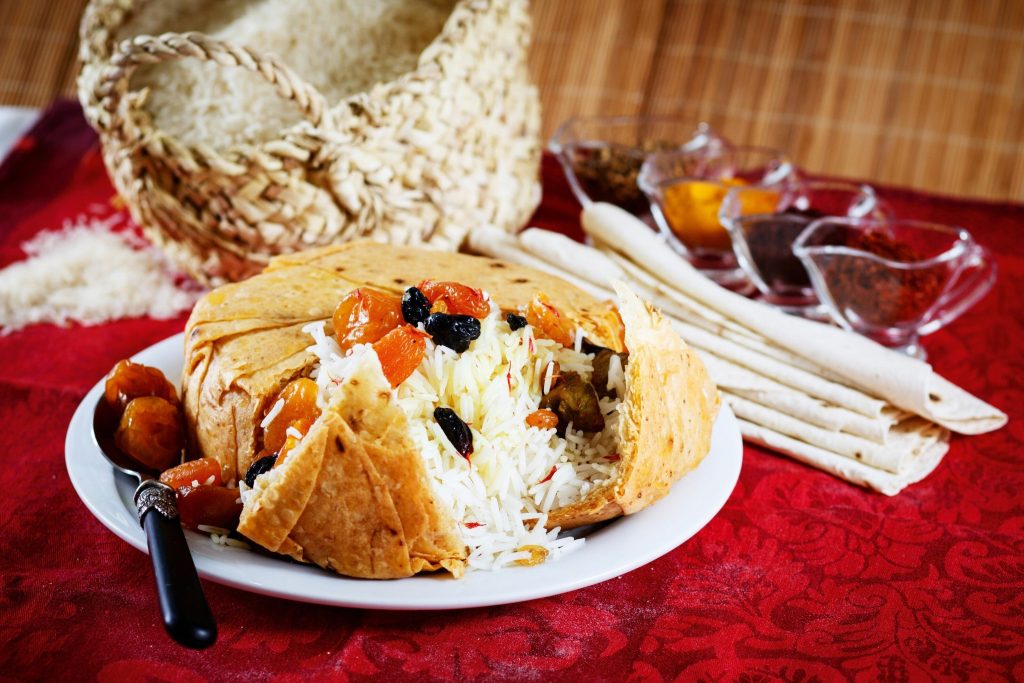Family Culinary Routes: Exploring Local Cuisine on Trips

Discovering Culinary Adventures Together
Food is more than just sustenance; it’s a deep-rooted part of culture and history. For families, culinary routes provide an authentic way to explore local customs and traditions during trips. Embarking on a food journey can create shared memories while tantalizing the taste buds. From the bustling food markets of major cities to the quaint farms in the countryside, each culinary experience has the potential to bring family members closer together while fostering an appreciation for diverse cultures.
Why Explore Local Cuisine?
Exploring local dishes is an enriching experience as each region boasts its own flavors and cooking techniques, illuminating the rich diversity of American culture. Through local cuisine, families can:
- Connect with locals: Engaging with chefs and vendors not only unveils personal stories but also fosters a sense of community. Imagine attending a family-owned restaurant in San Antonio where the chef recounts tales of their grandmother’s traditional recipes, or visiting a food truck in Portland where the owner shares the inspiration behind their innovative fusion dishes.
- Experience history: Every dish tells a tale of heritage and regional influences, revealing the unique narratives of the area. For instance, the iconic clam chowder of New England narrates a story of seaside life and the abundant marine resources that shaped its flavors.
- Taste seasonal ingredients: Fresh, local foods enhance flavor and support community agriculture. Families visiting a farmers’ market in California can pick ripe tomatoes and fresh basil, then transform them into a delightful Caprese salad, enjoying the satisfaction of knowing precisely where their ingredients came from.
Exciting Culinary Routes Across the U.S.
Traveling as a family opens up immense opportunities to dive into national culinary experiences. Here are a few highlights that promise to delight the senses:
- New Orleans: A food lover’s paradise, where families can savor gumbo infused with spicy sausage and seafood, and beignets dusted in powdered sugar while taking in the vibrant rhythms of street musicians that define this lively city.
- Northwest Coast: Renowned for its fresh seafood, families can indulge in dishes crafted from local fish and shellfish while exploring the practice of foraging for wild ingredients that add a unique touch to their meals.
- Midwest: Culinary experiences in the Midwest often highlight farm-to-table dining, where families can enjoy hearty meals that celebrate regional agriculture, such as roasted corn or artisanal cheeses, directly sourced from local farmers.
With so many culinary routes to explore, families can craft unforgettable experiences one bite at a time. Every meal becomes not just a chance to eat, but a delightful opportunity to discover the cultural landscape of America, engage with its people, and build lasting family bonds through the universal love of food.
DON’T MISS: Click here to discover fun family travel itineraries on a budget!

Engaging the Senses: The Joy of Culinary Exploration
When families embark on culinary routes, they step into a world where taste, aroma, and culture intertwine to create unforgettable experiences. Engaging with local cuisine fosters a deeper bond among family members, bringing them together to share meals that reflect the area’s heritage and flavors. Each culinary journey not only delights the palate but also sparks curiosity and conversation. From cooking classes to food festivals, the opportunities to discover new tastes and traditions are endless, making every meal a story waiting to be told.
Ways to Make Culinary Exploration Memorable
To ensure a truly memorable family culinary adventure, consider these engaging activities that can enhance your trip:
- Participate in Cooking Classes: Families can find their culinary rhythm by participating in hands-on cooking classes that specialize in regional cuisines. For example, in the heart of Chicago, families can learn to make deep-dish pizza from seasoned chefs, allowing everyone to contribute to a beloved local dish that has a rich history.
- Take a Food Tour: Guided food tours offer families the chance to explore neighborhoods through their culinary offerings. In cities like New York, families can stroll through vibrant marketplaces, sampling ethnic delicacies and learning about the stories behind world-famous street food.
- Attend Local Food Festivals: Most regions host seasonal food festivals celebrating their local produce. Events like the Lobster Festival in Maine or the Garlic Festival in California not only showcase local foods but also provide entertainment and a vibrant atmosphere for families to enjoy together.
Additionally, families can relish culinary challenges by creating their own food blogs or journals to document their gastronomic experiences. Encouraging children to write about their favorite dishes or even sketch their meals fosters their creativity and engagement in the culinary adventure.
Creating Family Traditions Around Food
Culinary routes can be the foundation of new family traditions. With each trip focusing on local cuisine, families can come home with recipes and skills to replicate the flavors they discovered. An evening spent recreating a dish learned during travel not only reinforces the memories made together but also brings a delightful taste of adventure to the dining table long after the trip ends.
The exploration of local cuisine turns meals into a vibrant storytelling medium, where flavors act as symbols of cultural exchange. By diving into the culinary arts of different regions, families embrace the chance to appreciate diversity while strengthening their bonds one dish at a time.
| Advantages | Details |
|---|---|
| Authentic Culinary Experiences | Engagement with locals introduces tourists to genuine flavors and cooking methods unique to each culture. |
| Family Bonding | Cooking together as a family fosters connection, creating lasting memories and traditions. |
| Educational Opportunities | Children and adults learn about different food systems, ingredients, and the history behind culinary practices. |
| Support for Local Economies | Dining in local restaurants helps sustain community businesses and promotes cultural heritage. |
As families travel and explore diverse culinary routes, they not only enjoy delightful meals but also immerse themselves in the rich tapestry of local cultures. Engaging in cooking classes or food tours enhances the trip experience by providing unique insights into regional traditions. Meanwhile, strong educational components promote awareness and appreciation for the various ingredients and cooking techniques indigenous to each area. This fusion of learning and leisure captivates families, urging them to delve deeper into the art of cooking and the stories behind each dish.Moreover, the impact on local economies cannot be overlooked. By choosing to savor local cuisines, travelers contribute to job creation in communities that thrive on tourism, ensuring that the culinary arts remain an integral part of cultural identity. The journey through culinary routes encourages not just tasting, but a complete sensory experience, making the act of eating a celebration of place, family, and history. Through such experiences, families create cherished memories and broaden their culinary horizons, leaving them with a greater appreciation for the world’s diverse kitchen cultures.
DISCOVER MORE: Click here for exciting family holiday destinations
Connecting with Cultures: Culinary Routes as Learning Experiences
Engaging in culinary routes transcends mere tasting; it presents an opportunity for families to connect with diverse communities and cultures. Food acts as a catalyst for storytelling, providing a tangible way to engage fully with a region’s history and customs. When families opt to explore local cuisine during their travels, they are not just savoring flavors; they are participating in a rich tapestry of cultural identity.
Exploring Ingredients and their Significance
One of the most enriching aspects of culinary exploration is understanding the significance of local ingredients. Many regions celebrate their indigenous products, which can often tell a historical narrative about the land and its people. For example, a trip to the Pacific Northwest might lead families to explore the role of salmon in Native American cultures, offering insights into sustainable fishing practices and environmental stewardship.
Moreover, engaging with local farmers’ markets can provide hands-on experiences where families can meet the growers, learn about seasonality, and understand how climate impacts flavor. Picking fresh herbs or vegetables not only fosters a connection with local agriculture but also teaches children valuable lessons about health, nutrition, and the importance of supporting local economies.
Hands-on Experiences That Enrich Understanding
Beyond taste, hands-on culinary experiences can deepen understanding and appreciation of various cultures. Families can participate in traditional food preparation methods native to the region. In the South, for instance, families can learn the art of making Southern biscuits or collard greens from local cooks who have been perfecting these techniques for generations. Not only does this build culinary skills, but it also nurtures an appreciation for the labor and tradition that goes into food preparation.
Additionally, sharing meals with local families can create meaningful connections. Programs such as “Eat With” allow travelers to dine in locals’ homes, bringing authenticity to the dining experience. These meals often contain stories about cultural practices, regional variations in dishes, and insights into familial traditions, enriching the culinary journey.
Cooking as a Shared Activity
Culinary routes can also facilitate teamwork within families. Cooking together allows family members to collaborate on meal preparation, fostering communication and cooperation. Whether chopping vegetables, following a recipe, or experimenting with new spices, children gain practical skills while parents model creativity in the kitchen. This shared experience not only enhances the familial bond but also encourages a sense of accomplishment when enjoying the fruits of their labor.
For families looking to integrate culinary adventures into their lifestyle, creating a family recipe book can be an enjoyable way to preserve memories. Each family trip can contribute to this collection, serving as a chronological illustration of their culinary journey and the diversity of tastes experienced along the way.
Ultimately, as families traverse different destinations through food, they not only discover unique cuisines but also cultivate lasting connections to the values and identities that these culinary traditions embody.
DIVE DEEPER: Click here to learn more about cultural journeys
Conclusion: Savoring the Journey through Culinary Exploration
As families embark on culinary routes, they unravel much more than just delightful dishes. The journey through local cuisines not only enhances the travel experience but also serves as a bridge to understanding diverse cultures and histories. By immersing themselves in the flavors and cooking techniques unique to each region, families embark on a voyage of discovery that profoundly enriches their understanding of the world.
Incorporating hands-on experiences, such as participating in local cooking classes or visiting farmers’ markets, fosters a sense of community and appreciation for the hard work behind each meal. These experiences also instill important lessons about sustainability and the significance of supporting local economies, particularly in an era where environmental consciousness is paramount.
Moreover, the act of cooking together as a family builds stronger bonds and creates lifelong memories. Whether it’s mastering a traditional dish or sharing a meal with local families, these moments cultivate an understanding of diverse culinary landscapes and promote mutual respect and connection.
Ultimately, family culinary routes are not just about tasting food; they are about savoring experiences, understanding cultural tapestries, and nurturing family ties. Each culinary adventure adds a new layer to a family’s identity and creates a collection of stories and flavors that can be cherished for years to come. So, as you plan your next trip, consider embracing the local cuisine; you may just find that the most meaningful part of your journey lies within the flavors you discover.



